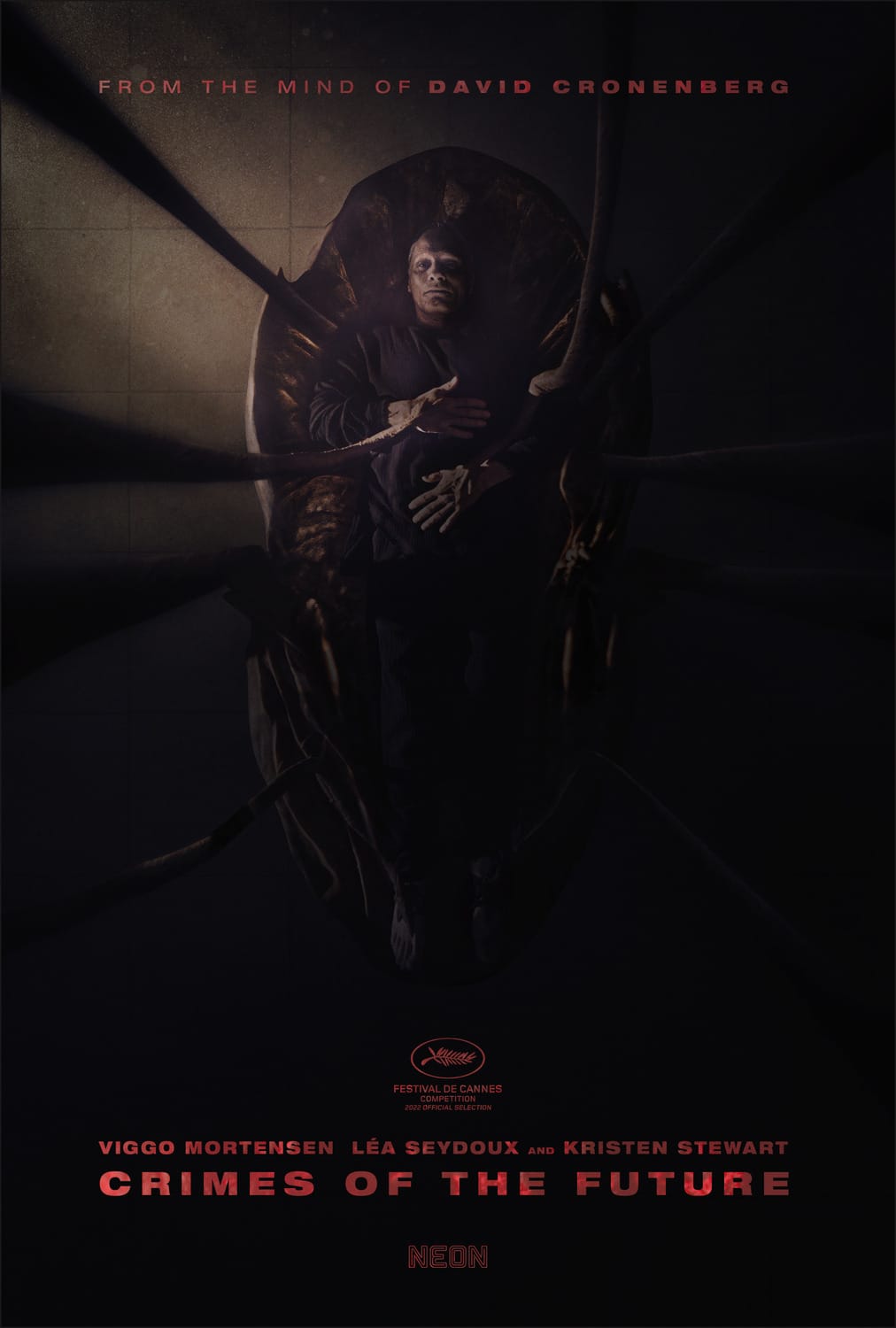Crimes of the Future
Gross

As the human species adapts to a synthetic environment, the body undergoes new transformations and mutations. Accompanied by his partner, celebrity performance artist Saul Tenser showcases the metamorphosis of his organs, all while, a mysterious group tries to use Saul's notoriety to shed light on the next phase of human evolution.
David Cronenberg has never stopped making the films the way he wants, and his visions have only become more realized as time goes on. I can respect this, even if I don’t totally gel with it, or even enjoy it. I find his films are often less stories and more experiences, more art piece than novel. Plus, I’m not into the whole body horror thing.
So, generally… not really my thing.
In the movie, Saul Tenser and Caprice are a well-known pair of performance artists, and their particular act is very popular in their toxic and polluted future world. Saul is able to grow new and unique organs within his body. They’re functional, but often for an unknown purpose. Then, to the delight of an enrapt audience, Caprice dramatically guides a multi-tentacled robot “pod” that has Saul inside it, all in order to surgically remove these strange new mutations from his body.
The Aristocrats!
Crimes of the Future is focused on the human body meshing with technology, intermingled with an overwhelming feeling of forbidden eroticism. This means that it often takes place in dirty concrete basements, as wet fleshy blobs of pulsating organic matter, all entangled with thick veiny tendrils, are cut open, spilling dark fluids, and the characters in the pods undulate and moan.
Obviously there’s a lot of “Cronenbergian” body horror here, from stitched lips, to multiple ears covering a body, to organ removals, not to mention the creepy organic technology that he so loves. The film is filled to the brim with the kind of things you’d expect in a Cronenberg film.
And at this point, that’s not necessarily bad, it’s good and kind of interesting, but it also feels a little… quaint? Out-dated? Also, this is definitely what you’d call “arty” sci-fi, with a lot of obvious intention going on behind the curtain, but I’d be hard-pressed to pin down what it’s actually trying to say. There’s some vague allusions to evolution, to suffering for your art, to rebellion, and the ramifications of the wanton destruction of the environment, but none of it’s very clear.
I was left wondering… maybe nothing’s there?
In the end, maybe the reality is that David Cronenberg is now more like the artist equivalent of the steampunk genre, more aesthetic than substance. Maybe the future arrived and he’s just not transgressive enough anymore to create the same level of artistic “crimes” that he used to?
